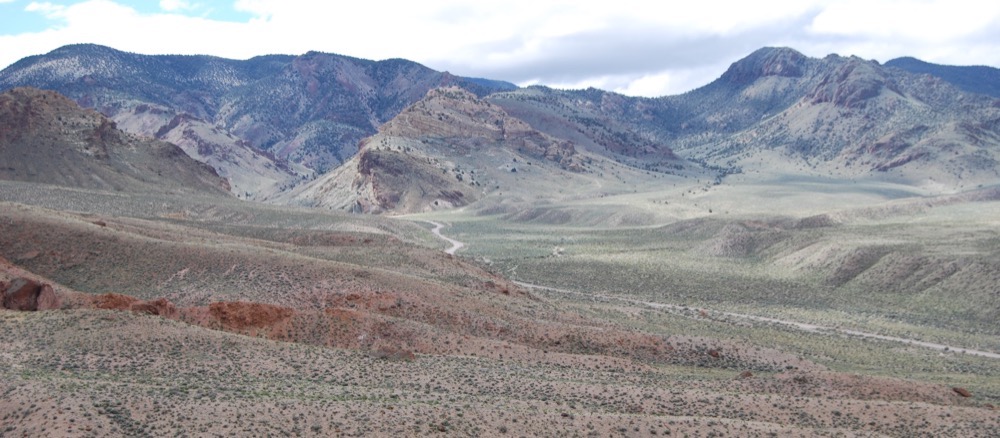
- Details
- By Levi Rickert
As mining activities escalate in western states and jeopardize indigenous lands and resources, the National Congress of American Indians called on Congress to enact legislation to protect Indigenous sacred sites from mining. The group’s General Assembly passed the resolution at its 2024 annual convention in Las Vegas, Nevada. NCAI is the oldest, largest and most representative Native American and Alaska Native organization serving the broad interests of tribal governments and communities.
The resolution urges Congress to enact the Advancing Tribal Parity on Public Land Act and The Tribal Cultural Areas Protection Act, sponsored by Senator Martin Heinrich (D-NM) and Representative Raul M. Grijalva (D-AZ).
The Advancing Tribal Parity on Public Land Act will increase Tribal consultation in public land use planning and require the consideration of the presence of cultural sites and fulfillment of treaty obligations in federal land acquisition decisions.
The Tribal Cultural Areas Protection Act would establish a national Tribal Cultural Areas System to designate public lands with culturally significant sites, which would be managed to preserve their cultural values. It would also direct public land management agencies to identify potential Tribal cultural areas, and provide authority to Tribal nations in the management of Tribal cultural areas.
“We’re excited that NCAI passed this resolution,” said Fermina Stevens, director of the Western Shoshone Defense Project (WSDP), a traditional indigenous non-profit organization based in Elko, Nevada. “Upholding treaty rights upholds human rights, religious rights and the rights of nature. As mining increases in the State of Nevada, lawmakers have an opportunity to do the right and responsible thing; which is to put water, biodiversity and people before profits. The U.S. Congress recognized the rights of Indigenous Peoples to practice our religion and culture as it simultaneously destroys the means in which to practice our religion and culture. Words on paper of the United States are pointless without meaningful and considerate action. Indigenous Peoples have sacrificed everything in the name of progress, but the only thing that has progressed is the degradation of nature due to mineral extraction in the state of Nevada.”
“Nevada ranks number 1 in gold mining in the U.S. and recent claims that Nevada has the largest lithium deposit in the U.S. will continue to harm and destroy Newe Sogobia (Shoshone homeland) at an increasingly rapid and alarming rate,” said Mary Gibson, WSDP community advisory board member. “There is no regard for cultural sites or even proper and meaningful consultation about what happens on our land. With the passing of the Tribal Cultural Areas Protection Act and Advancing Tribal Parity on Public Land Act, it could prevent the selling of our Treaty land due to the presence of cultural sites and fulfillment of treaty obligations in federal land acquisition decisions, see an increase in Tribal consultation on ‘public land’ use planning, and provide the capacity to protect and manage cultural areas.Public land is Indigenous land. This holds especially true in the state of Nevada where more than half the state is Western Shoshone land as guaranteed through the 1863 Ruby Valley Treaty.”
“In our 30 years of work on mining accountability we have seen many Indigenous cultural areas destroyed by mining operations such as the very significant Mt Tenabo cultural and spiritual area where gold mining overrode Western Shoshone values and spiritual practice,” said John Hadder, director of Great Basin Resource Watch. “In our work with Indigenous communities we hear over and over again that tribal consultation was not meaningful and disrespected their knowledge and values on their ancestral lands. The NCAI resolutions make it abundantly clear that mining corporations and current regulations will not protect these important areas.”
More Stories Like This
Trump signs law that revokes some limits on drilling in Alaska’s National Petroleum ReserveSouthern Sierra Miwuk Nation Gets 900-Acres ofLand Back
Chilkat Indian Village Tells New Palmer Mine Owners They Are “Not Welcome” in Chilkat Valley
Tribes, Coastal Group Ask Army Corps to Revoke Permit for Texas Export Terminal
Michigan Tribes Tell Supreme Court: Don’t Bail Out Enbridge
Help us defend tribal sovereignty.
At Native News Online, our mission is rooted in telling the stories that strengthen sovereignty and uplift Indigenous voices — not just at year’s end, but every single day.
Because of your generosity last year, we were able to keep our reporters on the ground in tribal communities, at national gatherings and in the halls of Congress — covering the issues that matter most to Indian Country: sovereignty, culture, education, health and economic opportunity.
That support sustained us through a tough year in 2025. Now, as we look to the year ahead, we need your help right now to ensure warrior journalism remains strong — reporting that defends tribal sovereignty, amplifies Native truth, and holds power accountable.
 The stakes couldn't be higher. Your support keeps Native voices heard, Native stories told and Native sovereignty defended.
The stakes couldn't be higher. Your support keeps Native voices heard, Native stories told and Native sovereignty defended.
Stand with Warrior Journalism today.
Levi Rickert (Potawatomi), Editor & Publisher

